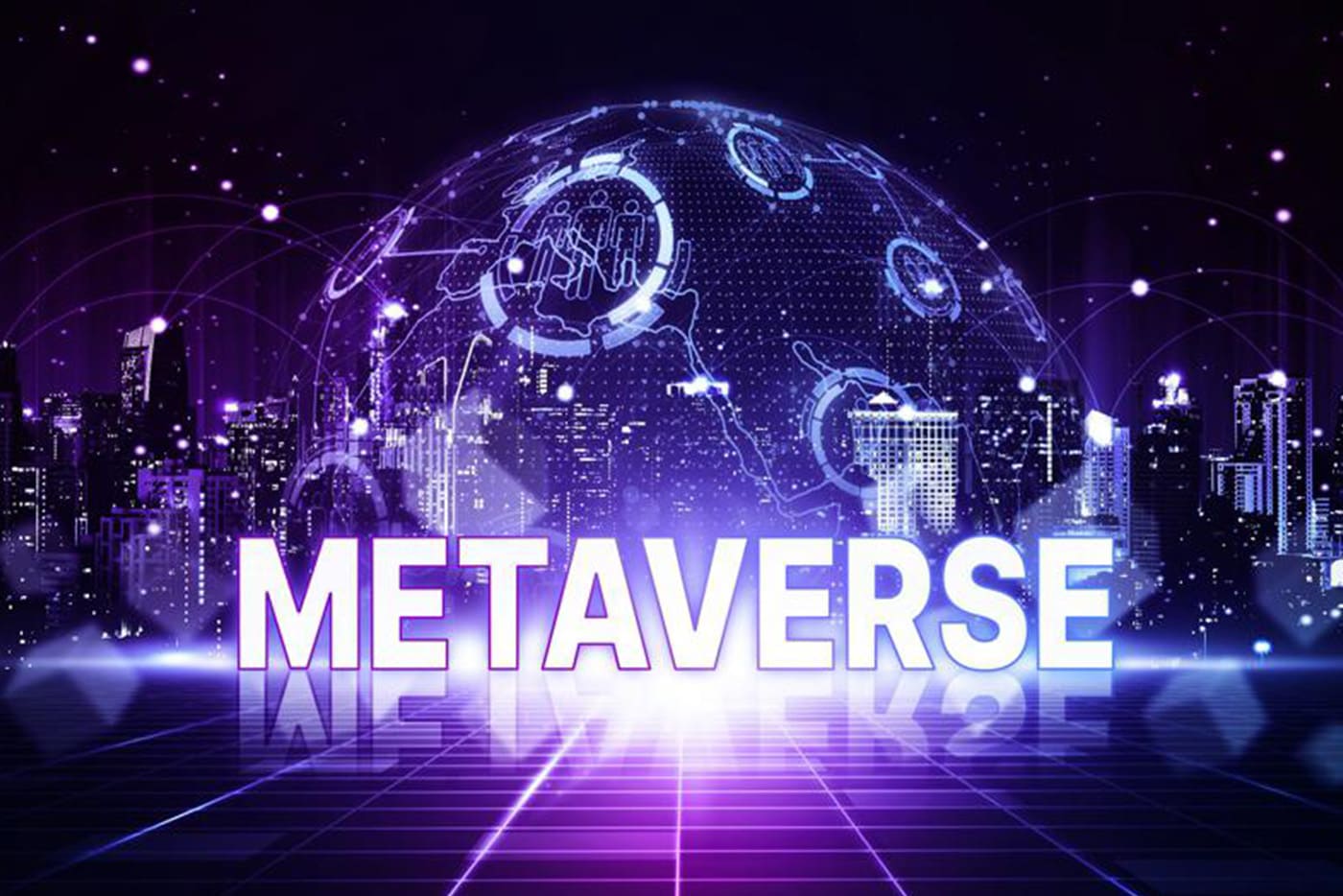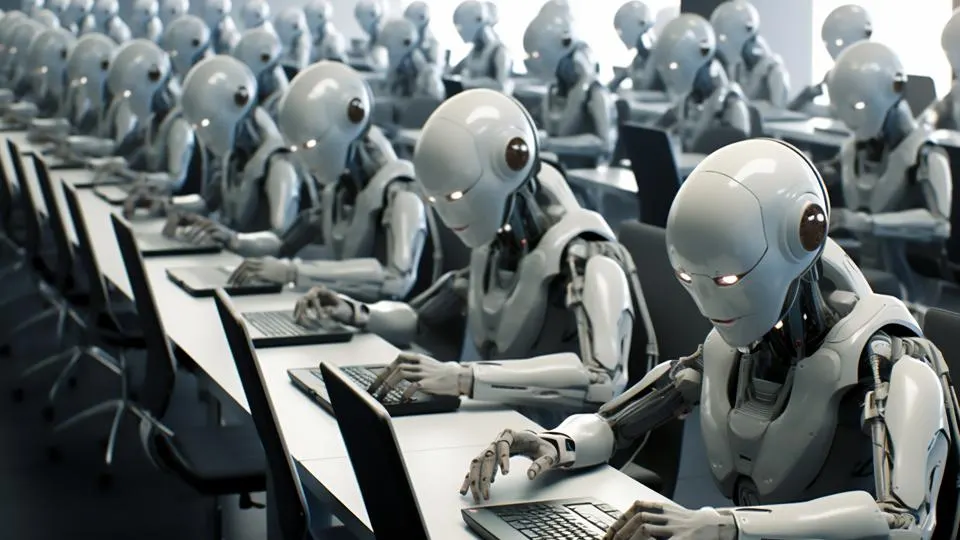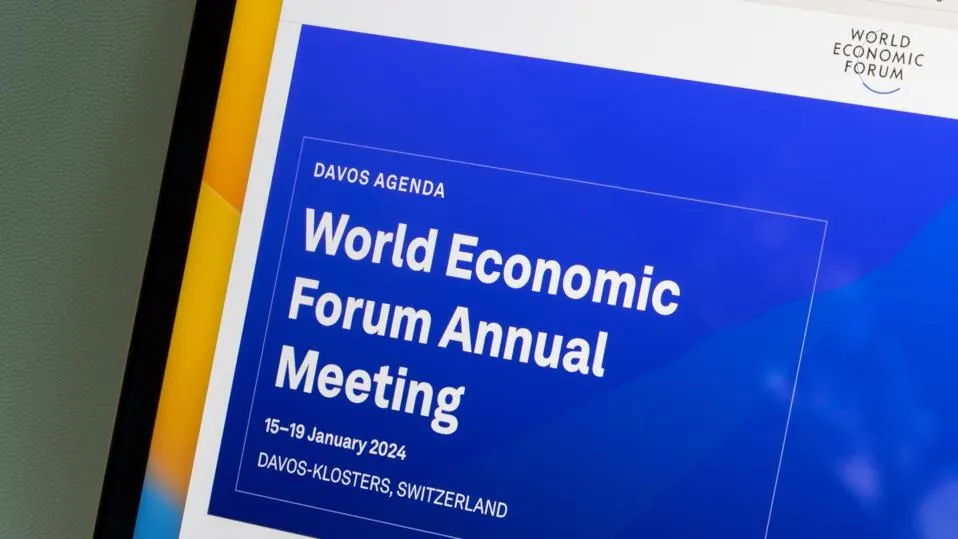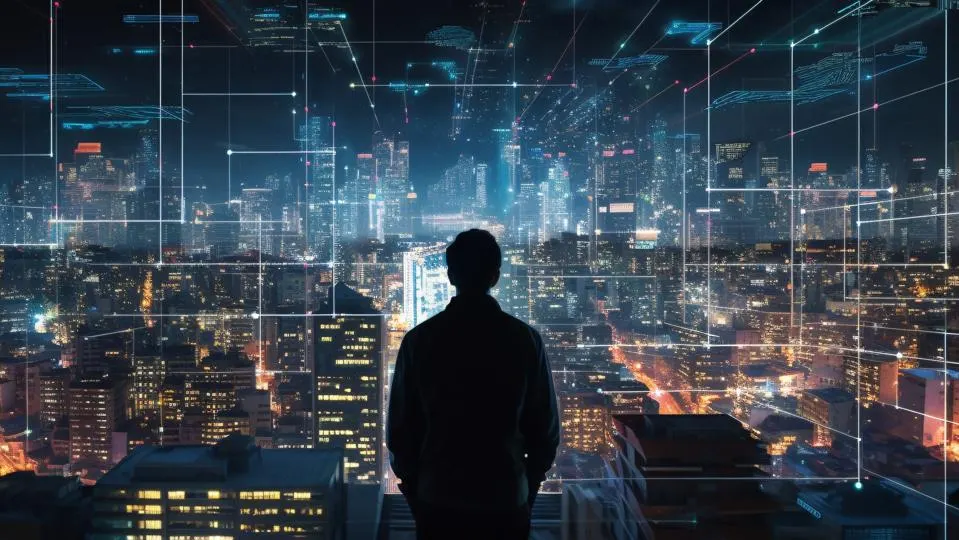The Most In-Demand Metaverse Skills Every Company Will Be Looking For
4 July 2022
The metaverse is here – and if we are to believe a recent Citi report, it could generate up to $13 trillion in value for businesses around the world by 2030.

This astronomical valuation is predicated on the idea that the metaverse is the name we are currently using for what will eventually become the “next level” of the internet. Today, we might log into Amazon, Facebook, or Slack for shopping, socializing, or working online. Tomorrow we will instead head for one of a new generation of metaverse services where we can do all of those things in a way that's far more immersive, interactive, and experiential.
In fact, that may only be the beginning – some more “far out” theories suggest that one day we may essentially live in the metaverse – our brains hooked into digital worlds that are simply imperceptibly different from reality. Sounds ridiculous? Quite a few people think we might be there already!
But staying in the here-and-now for a moment (or at least, what we think is the here and now), there’s that $13 trillion to think of. And anyone interested in taking a cut of that could do worse than to start thinking about the skills and experience that will be needed in this brave new digital world. As well as architects, engineers, and builders to put it together, we’ll also need teachers to show us how to use it, artists to fill it with beautiful things, and probably even police to keep us safe while we’re in it.
It’s a very new field, and the truth is, no one is exactly sure what it will look like when it gets big enough to start playing a role in mainstream society. But one thing that seems certain is that the metaverse is coming – and if you want to be a part of it, these could be some of the useful skillsets that will secure your place:
3D Modelling and Design
Metaverse worlds will be immersive and three-dimensional – we can see this already in the worlds developed by everyone from Meta to Roblox and Decentraland. Creating these environments so that they are functional, appealing to spend time in and immersive requires specific design sensitivities that are practiced by the likes of video game designers and animators working on 3D movies. Designers will have the task of conceptualizing, prototyping, and building the environments that metaverse users will explore as well as the objects and avatars they interact with.
Computer Programming
Many metaverse experiences will be created by designers using low-code or no-code worldbuilding solutions, such as Roblox or Somnium Space, as well as tools like Unity which require some understanding of coding to get the most out of. However, those tools need to be created in the first place – and as the metaverse and its user base matures, new tools will be needed to provide newer and more immersive experiences. For this reason, those with solid coding skills are always likely to be required by companies and organizations that want to be on the cutting-edge of metaverse development.
VR/ AR Development
Metaverse doesn’t have to involve virtual reality (VR) or augmented reality (AR) – many popular platforms considered to offer metaverse experiences today – Roblox or Decentraland, for example – are perfectly usable on normal, 2D screens. But many predict that virtual reality will play a big role as metaverse creators look to build the most immersive environments and interfaces that they can. AR has a role to play in bridging the gap between the real and virtual worlds – an essential element of the metaverse experience. Expertise in development using both of these technologies will undoubtedly be in high demand.
Blockchain / NFT Engineering
Many visions of how the metaverse will evolve include concepts like decentralization and uniqueness of digital assets. In order to make this possible, the underlying technology layer will include blockchain. This will enable the creation of distributed, decentralized infrastructure that can be used to build worlds that are ultimately under the control of their owners rather than whoever happens to own the servers or data centers where they are stored. NFT technology means we can create one-of-a-kind or limited-edition assets and prove who owns them or has the right to use or sell them. People with the ability to create this web3 infrastructure and assets will play an important role in the metaverse development and administration.
Data Skills
The digital world is built on data and information. Information on user behavior in the metaverse will be collected and analyzed to understand how people are using the environments and to create experiences that better meet their needs and desires. Information captured from sources in the real world will be used to build environments that more accurately resemble our own reality and are therefore more interesting and immersive to us. Just as we generate and consume data in the real world in order to use services that make our lives easier, we will do the same in virtual domains, and data specialists will be needed to analyze and draw insights from it.
UI/ UX Design
User interfaces (UIs) are the connecting points between ourselves in the real world and the virtual environments of the metaverse. And whether we are using touchscreen interfaces on our mobile phones or full body-tracking capabilities of immersive VR, we will need UI skills to ensure that interface is as natural and friction-free as possible. This contributes to the wider field of user experience (UX) – the art and science of ensuring the time we spend using software (in this case, metaverse software) is as intuitive, enjoyable, and rewarding as possible. Becoming skilled in either or both of these disciplines would be a great start for anyone looking toward beginning a career in metaverse development.
Project Management
Metaverse product managers will own the way that metaverse experiences are delivered to customers – the end-users of metaverse platforms and the citizens of virtual worlds. Developing metaverse experiences involves a whole range of skills and disciplines, and people with project management experience will be essential in order to tie it all together into a cohesive whole. These skills are needed to ensure that all of the elements are executed to a high standard and in a way that contributes to the overall quality of the experience.
Cyber Security
Security is just as important in the virtual world as it is in the cyber world, and this will only become more true as we spend more and more of our time online and in connected environments. As the metaverse will be the venue for everything from shopping to healthcare, great care will need to be taken to ensure that all of the channels through which we share valuable data -from credit card details to conversations about our health – are fully secure and not open to exploitation by malicious actors wanting to do us harm.
Marketing
The metaverse – just like the internet before it – clearly represents an enormous advertising and marketing opportunity. Finding new and engaging ways to promote products and services, as well as build brand awareness, within virtual spaces, will become an essential skill for marketers and anyone working in the advertising industry. With companies from Nike to MacDonalds, Coca-Cola, Goldman Sachs, and Gucci already spending big on metaverse marketing initiatives, it represents an exciting opportunity for any marketer who wants to be working on the new frontier.
Ethics and Social Responsibility
Last but by no means least, anyone creating metaverse experiences and environments has a responsibility to ensure that it’s done in a way that minimizes the risk of harm or negative consequences, either to individuals using it, to wider society, and to the environment. People with these skills will have roles ranging from ensuring we don’t make these worlds too addictive to ensuring our virtual worlds promote equality, inclusiveness, and essential freedoms.
Related Articles
How Generative AI Is Revolutionizing Customer Service
Customer service is proving to be one of the most popular applications of generative AI. But how exactly can generative AI aid customer service teams (without alienating customers)?[...]
Will Generative AI Help Us Solve The Climate Crisis (Or Will It Make It Worse)?
You might be surprised to learn that AI is already proving to be a powerful weapon in the fight against climate change.[...]
13 Ways Writers Should Embrace Generative AI
Generative AI is already being adopted in journalism to automate the creation of content, brainstorm ideas for features, create personalized news stories, and produce accompanying video content.[...]
12 New Jobs For The Generative AI Era
When any major new technology grabs the headlines, talk quickly turns to jobs. And so it is with generative AI.[...]
AI Everywhere: The Unmissable Highlights From Davos 2024
This year's World Economic Forum Annual Meeting in Davos was a testament to the growing prominence of artificial intelligence (AI) in our world.[...]
Harnessing AI’s Full Potential: 5 Adoption Essentials For Enterprise Success
Anyone paying attention to business and technology knows that AI is already driving seismic waves of change in industry and day-to-day life.[...]
Sign up to Stay in Touch!
Bernard Marr is a world-renowned futurist, influencer and thought leader in the fields of business and technology, with a passion for using technology for the good of humanity.
He is a best-selling author of over 20 books, writes a regular column for Forbes and advises and coaches many of the world’s best-known organisations.
He has a combined following of 4 million people across his social media channels and newsletters and was ranked by LinkedIn as one of the top 5 business influencers in the world.
Bernard’s latest book is ‘Generative AI in Practice’.










Social Media